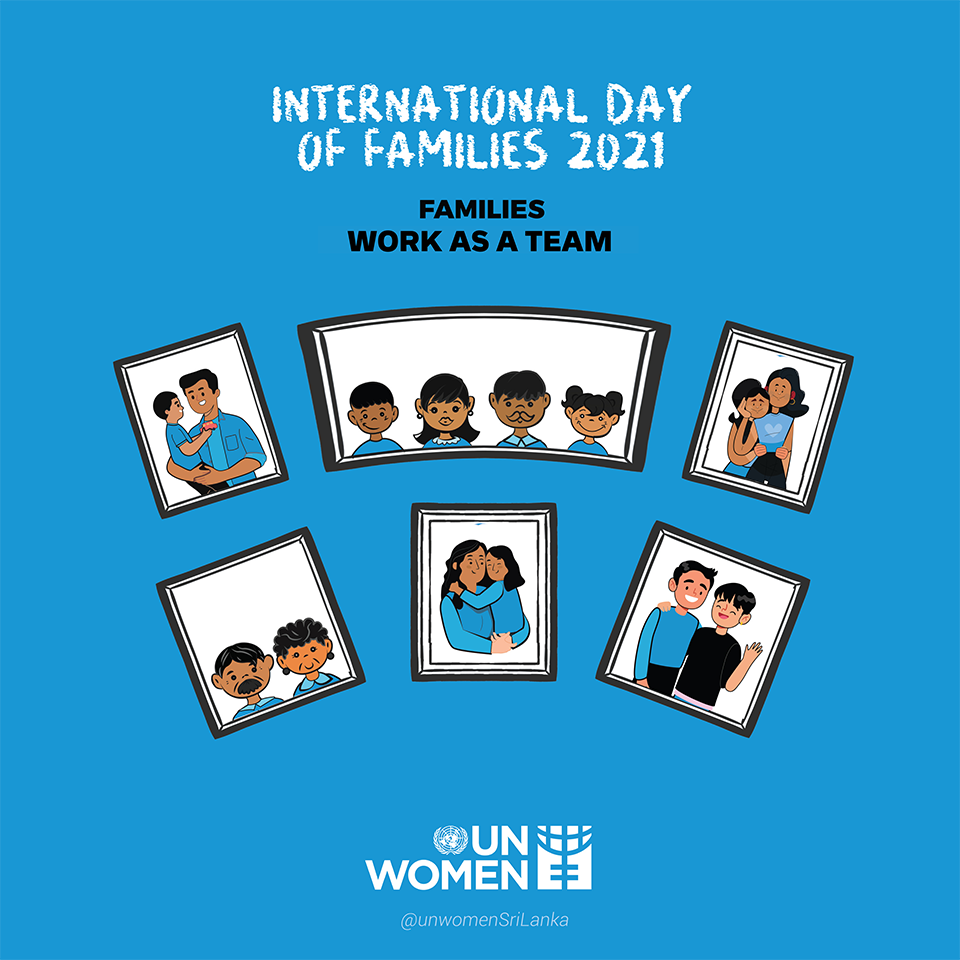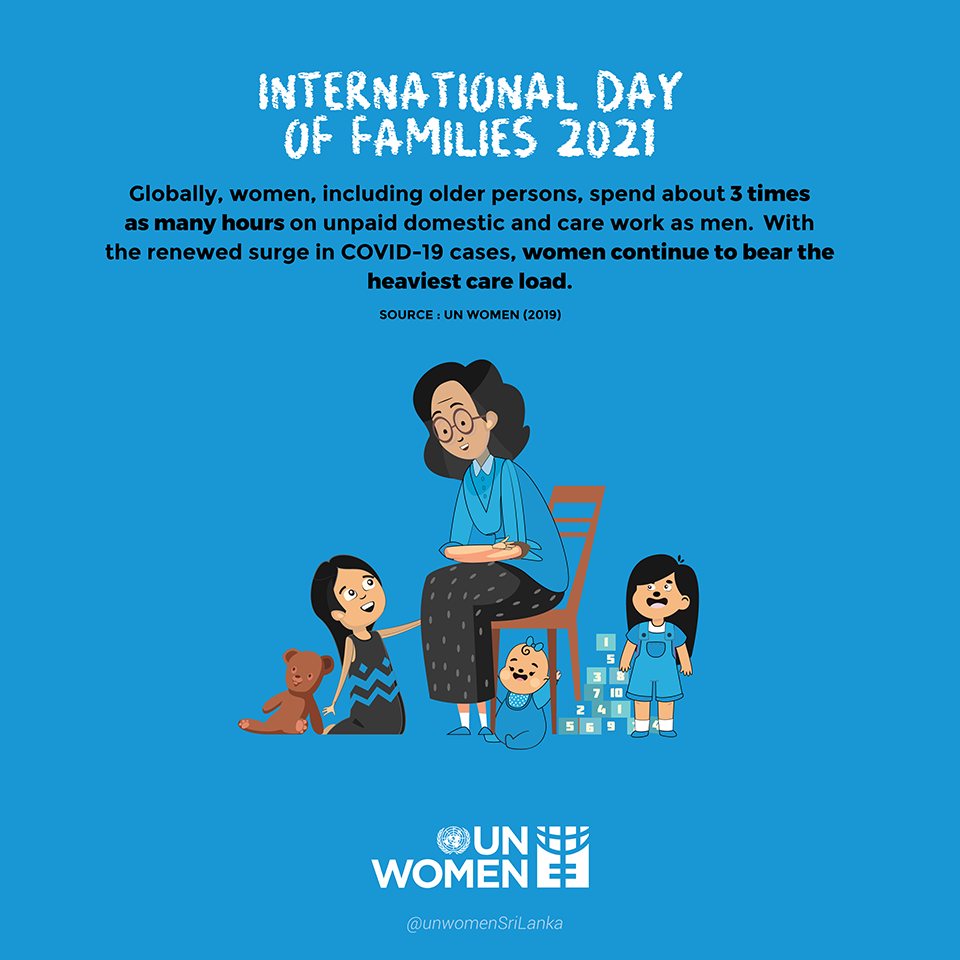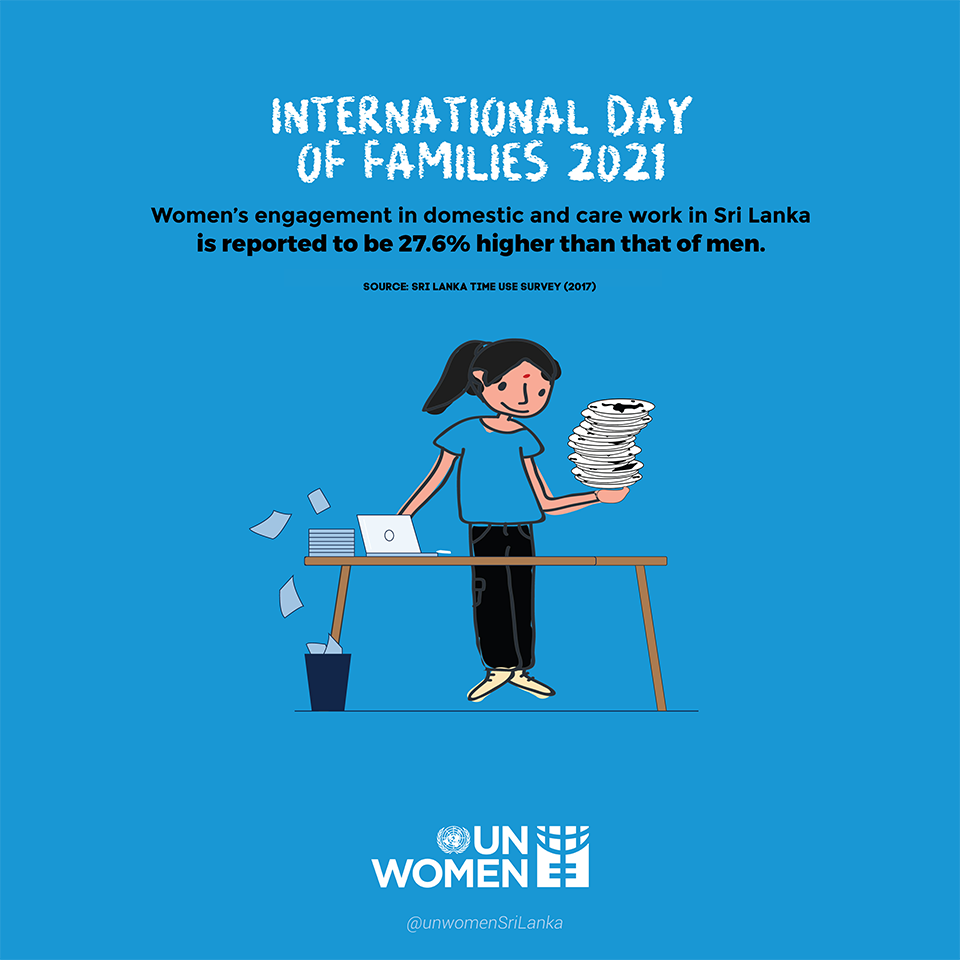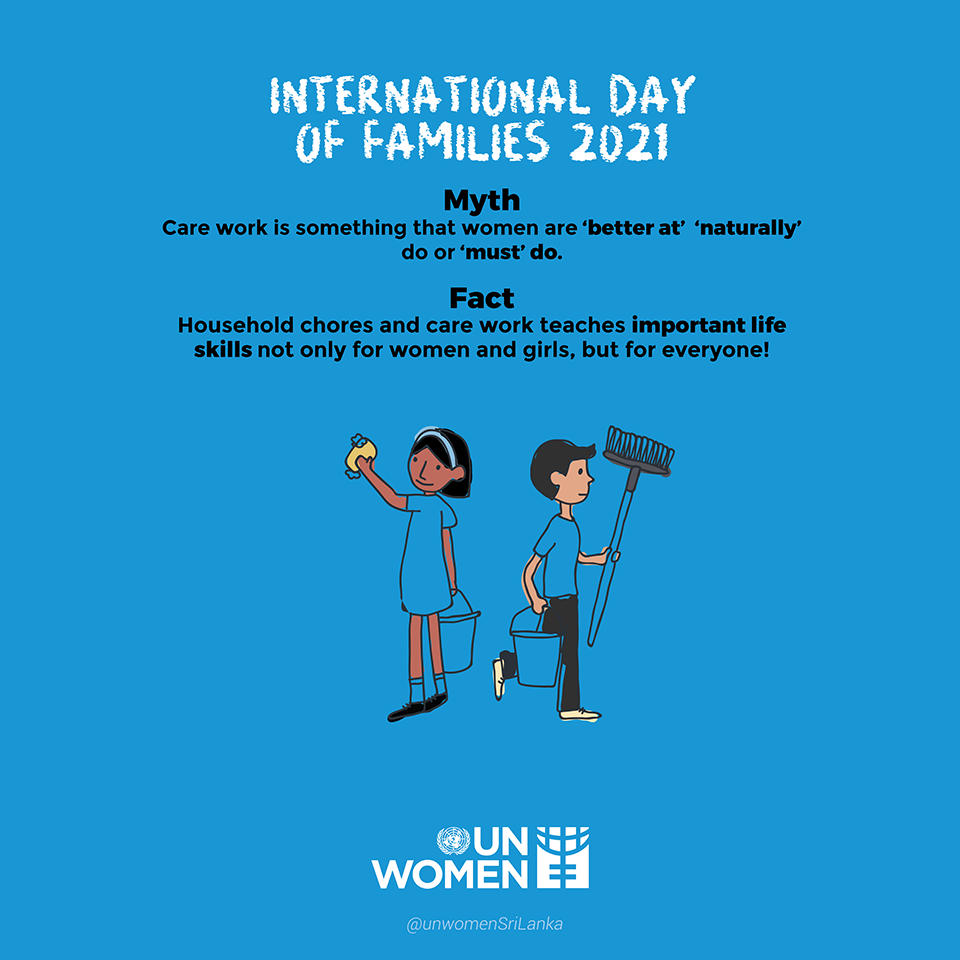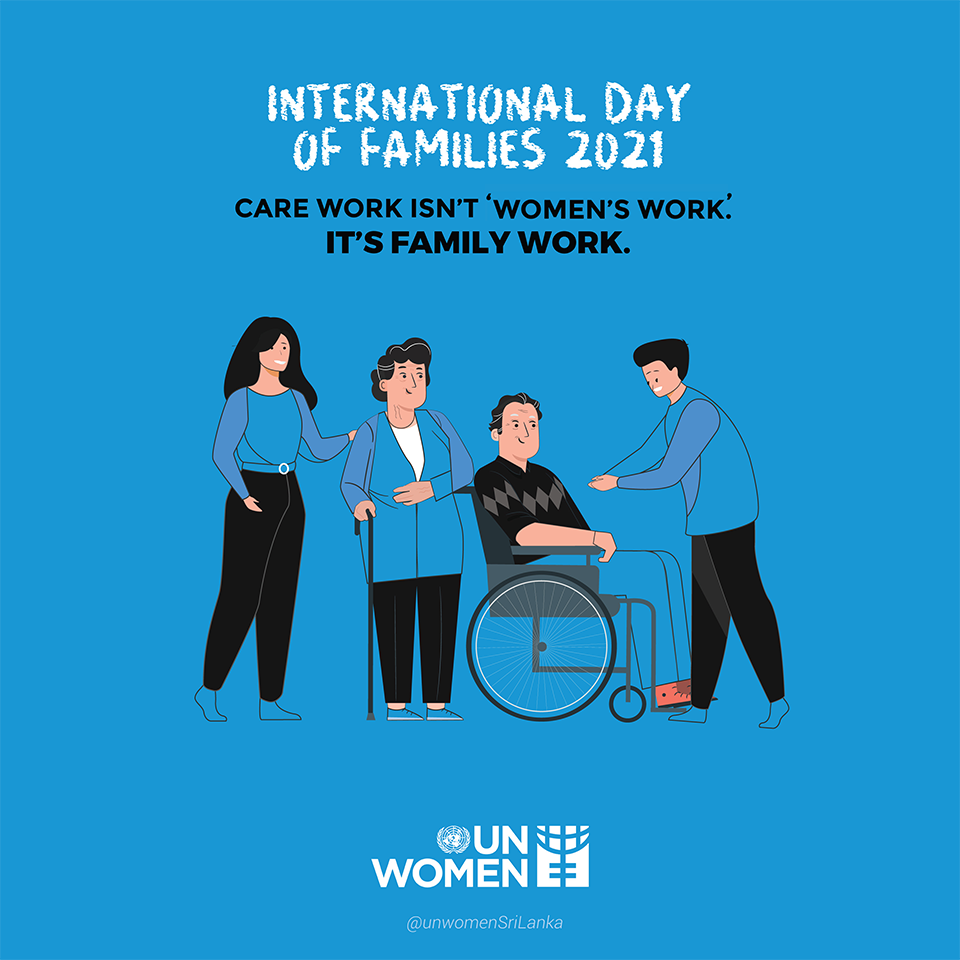Care work, critical during COVID-19 pandemic, is undervalued and unequally shared in Sri Lanka
Date:
Authors: Prashanthi Jayasekera, Prashani Dias and Avindi Perera
Colombo, Sri Lanka — Cooking, cleaning, looking after the children, sick and elderly — care work is the backbone of thriving families, communities and economies. It has become even more important amid the lockdowns, school and business closures, and illnesses caused by the COVID-19 pandemic. Yet as countries mark International Day of Families today, it is clear that in Sri Lanka, care work continues to be undervalued and seen as merely “a woman’s responsibility”.
Before the pandemic, Sri Lanka’s Time Use Survey (2017) found that 87.3 per cent of women and girls over the age of 10 did housework and care work, compared to only 59.7 per cent of men and boys.
Female heads of households face a triple burden -- while being the sole breadwinner of the family, they must also do domestic chores and care work.
More women are also leaving paid employment. Even before the pandemic, the Government categorized 73.7 per cent of women in Sri Lanka as “economically inactive”. Many people think women should do care work in exchange for men doing formal jobs to provide for the family, so in Sri Lanka, marriage lowers by 26 per cent women’s odds of becoming a paid employee, whereas for men it increases the odds by 2.5 per cent.
Research has shown a clear link between men’s sexist expectations about care work and violence against women. According to a 2019 household survey in India, Sri Lanka’s neighbour, 42.2 per cent of women who failed to fetch water or firewood for the family were beaten, as were 41.2 per cent of those who failed to prepare meals for men in the family. Before the pandemic, 1 in 5 women in Sri Lanka were estimated to have experienced physical or sexual violence by an intimate partner in their lifetime. Since the pandemic began, all forms of violence against women and girls have increased globally, particularly intimate partner violence.
Some common misconceptions perpetuate the gender inequality around care work.
One is that it does not take much time and has no value compared to other types of work. The reality is that people around the world spend about 16.4 billion hours on unpaid care work every day. This is equal to 2 billion people working 8 hours per day without pay. UN Women says that globally, women spend three times as many hours on unpaid domestic and care work as men.
A second misconception is that care work is something that women are naturally suited for. The reality is this notion stems from gender norms that societies have created to define acceptable behaviours for women and for men. Care work is considered a service or sacrifice that women should do for their families.
An estimated one million people in Sri Lanka have become newly poor due to the pandemic. If men take on some of the burden of care work, more women and girls could attend school and do paid jobs. This would significantly increase household income during the pandemic and beyond. The McKinsey Global Institute says that by achieving gender equality, Sri Lanka could add $20 billion a year to its GDP by 2025.
To alleviate the problem, Sri Lanka needs to recognize, reduce and redistribute care work.
The country lacks the national data needed to measure the value of care work, so more research and macroeconomic analyses are needed. Policymakers must recognize and ease the gender inequality that undergirds the unequal care burden.
Unfair care work burdens can be reduced through investments in public infrastructure and services to support families and programmes to promote gender equality and women’s financial independence and safety, girls’ right to education, equal access to job opportunities, and ways to keep women in the workforce.
Care work can be redistributed between households and societies, and between men and women, through gender-responsive labour policies including recruitment, retention, promotion and safe working environments, as well as services for parents such as paternal leave, flexible work for men and women, and safe public childcare services.
